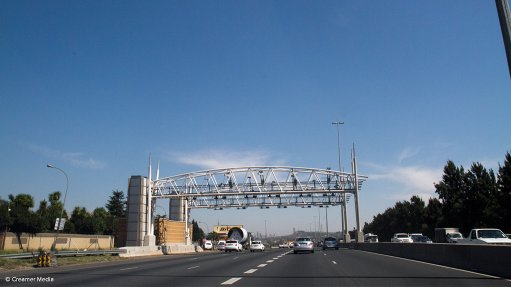
Photo by: Creamer Media
The Gauteng provincial government has yet to show how it will fund its previously agreed 30% contribution of R12.9-billion of the total outstanding debt of R47-billion for phase 1 of the Gauteng Freeway Improvement Project (GFIP).
This follows the announcement made by Finance Minister Enoch Godongwana during his 2022 medium term budget policy speech that national government would take over the obligations of the South African National Roads Agency Limited for phase 1 of the GFIP.
In the 2024 Budget Review, published on February 21, government revealed that the province still needs to show how it will fund this from its own revenue sources over a maximum of five years.
The finalisation of the agreement also deals with the maintenance of the network, which includes rehabilitating roads. However, Treasury has said that an agreement has yet to be reached between the national government and the Gauteng provincial government on how these costs will be shared.
This comes on the back of announcements made by Gauteng Premier Panyaza Lesufi earlier this week in his State of the Province Address, where he promised that the e-tolls – which were originally meant to be the primary means of covering the GFIP debt – would officially be scrapped by end of March.
However, a similar promise was made in 2022, where both he and Godongwana assured that the e-tolls scheme would end by the end of that year. However, e-tolls have continued to be billed ever since, with Organisation Undoing Tax Abuse CEO Wayne Duvenhage claiming a week ago that about R40-million was still being collected every month from about 12% of Gauteng’s road users.
Godongwana, through National Treasury, was meant to assist the Department of Transport (DoT) and its entities to receive final decisions on all alternative revenue source proposals submitted to National Treasury from the transport portfolio and submit a progress report to the Portfolio Committee on Transport by the end of January.
National Treasury is tasked with considering proposals by departments and entities on a case-by-case basis for activities that are consistent with their mandates and where approval from the Finance Minister is required.
However, the 2024 Budget Review shows that, to date, National Treasury has still not received any alternative revenue source proposals from the DoT and its entities for consideration in the current financial year.
The Gauteng provincial government’s funding proposals may be revealed upon the release of its budget in the coming weeks.
ENDS.